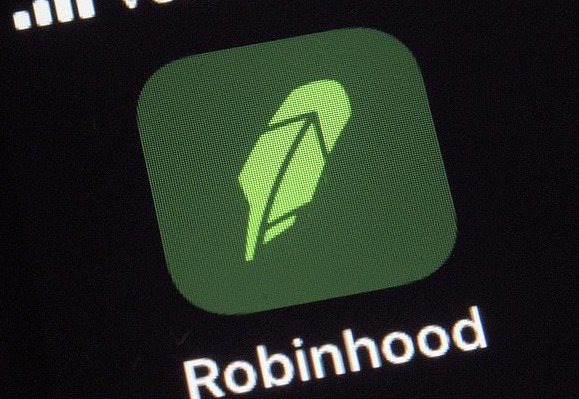The company behind the trading app Robinhood is facing more than 30 civil lawsuits from its users in relation to restrictions it imposed temporarily limiting purchases of certain stocks last week.
Several groups of the app’s users have filed separate lawsuits against Robinhood Markets Inc. in federal courts, including in California, New Jersey, Texas and Florida.
The lawsuits allege that the company violated various laws by imposing restrictions on its platform, including a breach of contract and its fiduciary duty.
Robinhood has said that the restrictions were needed for the company to meet clearinghouse requirements and regulatory obligations, but when approached by the Wall Street Journal, a spokeswoman declined to comment on the lawsuits.
Last week, Reddit users – organised on the WallStreetBets message board – drove the price of stocks of some struggling companies up in order to counter short-selling efforts by Wall Street hedge funds.
Hedge funds had been betting against the companies, including videogame retailer GameStop Corp. and movie-theatre company AMC Entertainment Holdings Inc., but through the Reddit-coordinated campaign, shares in those companies skyrocketed.
Shares in GameStop, for instance, closed at $347.51 on January 27, having been trading below $20 earlier in the month.
In response, Robinhood and other trading apps imposed restrictions on trading the high-flying stocks, leaving users furious, with only the choice of holding on to their stocks or selling them on.
Shares in GameStop and AMC fell on Thursday after the restrictions were imposed, but bounced back on Friday after Robinhood allowed for limited purchases again.
On Tuesday, GameStop shares closed at $90, before the brokerage further loosened restrictions on Wednesday.
According to the Wall Street Journal, one of the lawsuits filed on Thursday in the Southern District of New York by an individual investor, alleged that Robinhood ‘deprived their customers of the ability to use their service’ and potential gains from trading for ‘no legitimate reason.’
Another filed by a user of the app in the Northern District of California alleged that the restrictions deprived individuals the ability to invest in the open market, and served to manipulate the market and benefit individuals and financial institutions that weren’t Robinhood’s customers.
The Reddit frenzy resulting in hedge funds losing billions of dollars. In one case, Melvin Capital – which had bet against GameStop – had to be bailed out because of the roughly $4.5 billion losses it suffered in the frenzy.
The firm started the year looking after around $12.75 billion of funds, but this is said to have fallen dramatically to $8 billion, which includes a $2.75 billion bailout from two other hedge funds – Citadel and Point72.
A third complaint – filed on Tuesday, also in the Northern District of California – alleges Robinhood’s explanation for its restrictions was false and misleading, and that the company imposed the restrictions to drive down the stock prices.
‘We look forward to seeking justice for consumers and holding Robinhood to account for its conduct last week,’ a lawyer at Migliaccio & Rathod LLP representing the plaintiffs in the case, Jason Rathod, said in an email to the WSJ.
‘So far, Robinhood has deflected responsibility, and acted as if external forces beyond its control are responsible for suspending trading. These excuses ring hollow.’
In recent blog posts, Robinhood said the restrictions it imposed stemmed from regulatory requirements and risk management, including net capital obligations required by the Securities and Exchange Commission and deposit requirements from it clearinghouse.
In a post Friday, Robinhood said that ‘the amount required by clearinghouses to cover the settlement period of some securities rose tremendously’ last week.
The post said that the clearinghouse-mandated deposit requirements related to equities increased 10-fold. On January 31, Robinhood CEO Vladimir Tenev said that the NSCC demanded a $3 billion deposit the morning they imposed the restrictions.
In a discussion with Elon Musk, Tenev said this was later negotiated down to $700 million, but in order to achieve this they had to provide the NSCC with certain assurances, he said.
‘To be the trusted and responsible platform you can rely on, Robinhood has to operate within the existing regulatory environment,’ the company said in another blog post on Monday. ‘We have to make progressive strides while simultaneously complying with laws and regulations outside of our control.’





























